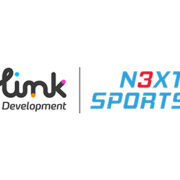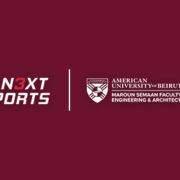The LEAP 2025 Technology Conference hosted its first official sports-technology track at this month’s annual event in Riyadh, Saudi Arabia, with “technology integration” forming a significant and recurring theme across the conference. N3XT Sports was on the ground with our clients and partners at LEAP to gather and offer key learnings on the future of technology and the role of digital transformation across the Gulf region’s burgeoning sports market.
Our team supported important conversations focused on where the industry is going to create the most value through innovation. Speaking from the Sports Tech Stage, our CEO Mounir Zok moderated a panel focused on digital experiences and strategies driving fan engagement among some of the industry’s digital benchmarks. Meanwhile, it was clear across the event that building direct relationships with customers and fans is one of the key pillars for “technology integration”.
The implementation of digital frameworks and infrastructure designed for ingesting user data, understanding consumer behavior, and ultimately what the user wants from an organization’s products will be the driving force behind innovation going forward. As we often discuss across our insights articles and industry reports, the consolidation of fan, athlete, and stakeholder data is playing an important role in the types of technologies sports organizations and rights holders choose to integrate, including its influence on fan engagement, enhancing the user experience (UX), and optimizing internal workflows.
With its regional office based in Riyadh, N3XT Sports is expanding its strategic partnership with global software provider Link Development to create best-in-class technology and digital transformation solutions to serve sports entities in the Middle East and North Africa (MENA) market. This includes the launch of the first ever Arabic-native Fan & Member Engagement solution to help clubs, leagues, and federations to leverage fan and stakeholder data, improve efficiencies around the customer relationship and data ownership, and unlock new commercial opportunities through innovation.
Artificial intelligence (AI) and the role machine-learning technologies will also play in the democratization of data-led product development was also a hot topic among the big industries on show at LEAP 2025. This is something the sports sector is embracing in 2025 as organizations seek to integrate new technologies that serve their fan-engagement strategies and pivot to centralized, data-rich ecosystems. N3XT Sports is supporting its clients on the implementation of AI tools into their technology stack while offering training on AI governance and integration.
In this new era of digital sports, we are working at a time when every organization is implementing new technologies into their ecosystems. The sports sector, with its push for digital engagement and operational efficiency, is democratizing “technology integration” across the board, and will be key to building future commercial and sustainable success in the digital age of sports consumption. This will rely on sports properties gaining a detailed understanding of how to evolve their technological infrastructure and where opportunities for growth sit within their business.
To do this effectively, the consensus from LEAP 2025 is that sports businesses will need to futureproof their technology and digital capabilities to stay engaged with digitally savvy audiences, while also ensuring that they hold the capacity to ingest larger volumes of data and the processing power to deliver data-informed decisions, and digital experiences, within their evolving ecosystems.
Data will be central to all of these developments and stretch far beyond the digital experiences currently in the hands of the fan, but also to the stadium experience, new models for member and stakeholder relations, and how rights holders upskill and increase the digital literacy of its workforce. This also extends to sport’s role as a vehicle for social cohesion and its ability to nurture community and youth development in emerging sports markets.
We heard from many companies at LEAP 2025 working in “technology integration”, who spoke about the key values in translating sports business needs into technical requirements and digital roadmaps. This signals a potential shift in the structures of sports organizations where business units have traditionally kept their technologies and operations separate and to enact technology as an enabler for optimizing operational and data efficiencies.
N3XT Sports is currently working on this integration process with its clients in the Gulf region, and for whom the centralization of their digital and data infrastructure will unleash the opportunities that lay ahead within AI and machine learning. Automation works hand in hand with IT departments to help optimize cross-departmental communications, the employee experience (EX), customer relations, and efficient data retrieval and segmentation, unlocking new avenues for them to innovate and drive new commercial activations based on user behaviors inside and outside the organization.
Sensible and effective technology integration is an essential piece to this puzzle, as sports bodies and clubs in the Gulf region continue to innovate their product offering to engage and retain both domestic and international audiences. This is a sentiment shared among sports companies working in the Gulf states (GCC). Writing in our recently published Digital Transformation Regional Market Report 2025 | Gulf, the CEO of Saudi-based SURJ Sports Investment, Danny Townsend, says: “Technology and innovation are integral to the future of sport. At SURJ, this is something we are acutely aware of, and seek to empower sports businesses to innovate, reach new audiences, and elevate fan experiences, shaping the GCC into an even greater sports hub where local development meets global impact.”
Overall, sport plays a significant role in the national economic diversification strategies of the Gulf states. From active cities and new urban plans, to greater economic contribution, to lower healthcare costs over the long-term as the population ages in the coming decades, sport is seen as a catalyst for the region’s governments. Our work in the region highlights the opportunity to invest in the digital upskilling and training of the sports-sector workforce. Our team is ready and available to discuss your digital transformation needs. We look forward to continuing our support for our clients in the Gulf market and contributing to its legacy.




